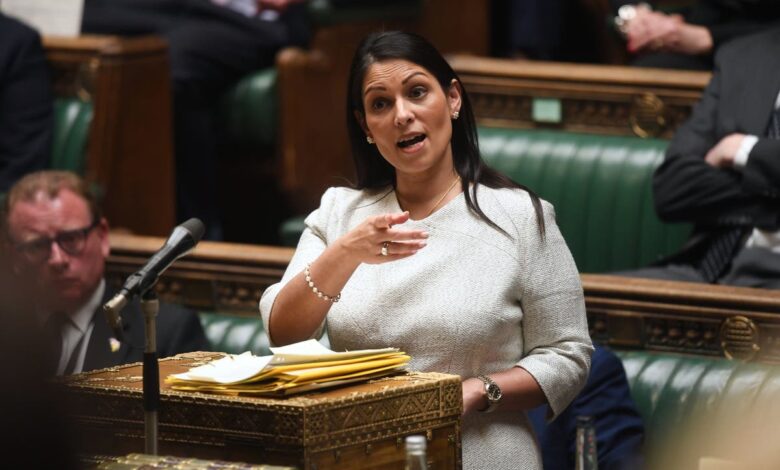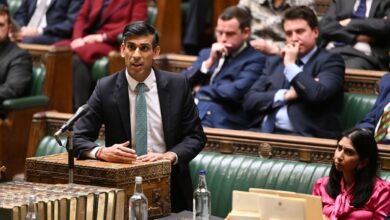Priti Patel faces legal challenge against Rwanda deportation deal

Priti Patel is already facing legal action against her plans to ship asylum seekers to Rwanda in what is likely to be the first of many challenges against the controversial policy.
Lawyers representing an asylum seeker who is eligible for removal under the plans have lodged a judicial review application, arguing that sending him to the East African country would violate his human rights.
They argue that the deal the British government has brokered with Rwanda, which will see people who have arrived in the UK to seek asylum sent 4,000 miles away to have their claims considered by the Rwandan authorities, breaks the law in multiple ways.
The lawyers say it is in breach of both the European Convention on Human Rights (ECHR) – on the basis that it denies deportees proper access to the courts and is discriminatory – and the Geneva Convention, which stipulates that asylum seekers should not be penalised for their method of arrival.
The lawyers also argue that the policy breaches the law on the basis that Rwanda cannot be considered a “safe country”, as the UK government claims.
The solicitor bringing the case, Harjot Singh of Twinwood Law Practice, told The Independent: “We strongly feel that the [policy] is unlawful. I’ve got all my faith in the judicial system. I’ll leave it to the judges.”
Zoe Bantleman, legal director and the Immigration Law Practitioners’ Association, said there were likely to be further legal challenges.
“The government is not above the law, which lawyers are professionally and ethically charged to uphold without regard to their politics,” she said.
“Further litigation, to challenge any failure by the UK to comply with its obligations under the law, is likely and will be necessary to maintain the rule of law.”
She added: “We are deeply concerned that if this policy were to be found unlawful by our courts, the government would see our legal and constitutional framework as an impediment to its agenda and alter the law to weaken the protection of rights.”
The multi-million pound deal, announced last week, is set to see asylum seekers who are deemed to be “inadmissible” – meaning they travelled through a safe country to reach Britain and therefore will not have their claim decided in the UK – deported to Rwanda to have their claims processed there.
The UK’s inadmissibility rules, introduced in January 2021, stipulate that individuals deemed to be inadmissible can be removed to the safe country they travelled through if that country agrees to their return – or otherwise to “any safe third country that will take them”.
Given that the UK has failed to strike any bilateral returns agreements with EU countries to enable it to send asylum seekers back to the continent, ministers hope the new migration deal will mean they can instead remove them to Rwanda.
The agreement requires Rwanda to process claims in accordance with the UN Refugee Convention, ensuring protection from inhuman and degrading treatment.
However, the lawyers argue that there is “no mechanism in place to ensure that this is done”, adding that Rwanda has a “poor human rights record” and that asylum seekers in the country are “not treated in accordance with acceptable level of treatment accorded to them by international law”.
They cite an Amnesty International report published in 2019 which describes an incident in February 2018 in which at least 11 Congolese refugees were killed when the police opened fire on protestors in Karongi town and in Kiziba refugee camp, both in Western Rwanda.
The report states that one year on, rather than investigating the unnecessary and/or excessive use of force by police, the Rwandan authorities have arrested and prosecuted refugees for their involvement in the protests.
The lawyers also quote the US government latest Trafficking in Persons Report for 2021, which accuses the Rwandan authorities of detaining thousands of potential victims in district transit centres “without conducting adequate screening or referring identified victims to proper care and assistance”.
The report adds the Rwandan government investigated fewer trafficking cases and prosecuted and convicted fewer traffickers compared to the previous year, and that it “lacked a victim-witness support program”.





